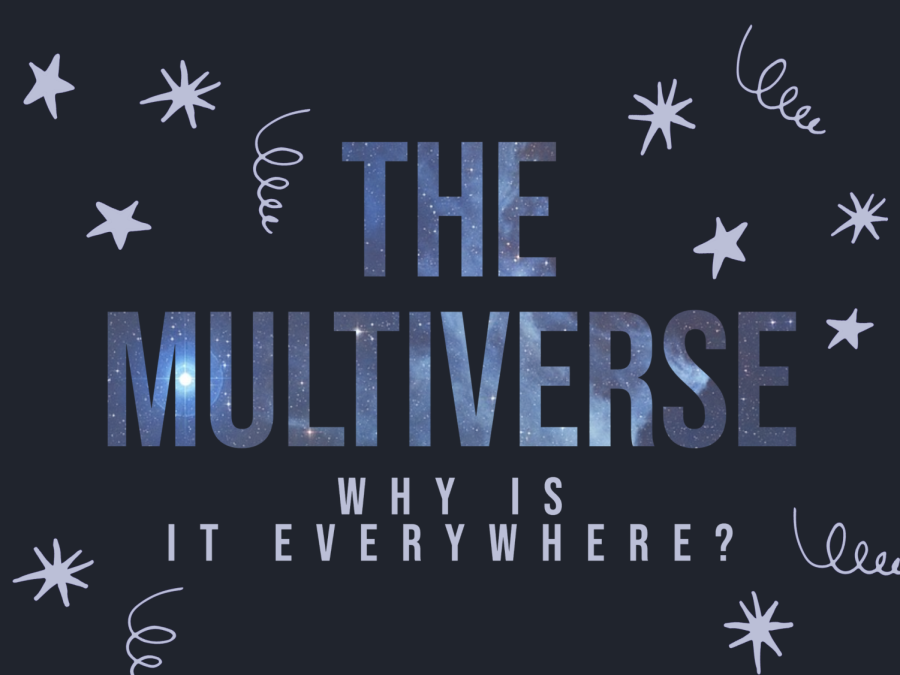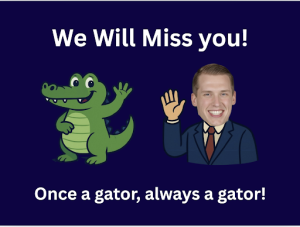What’s With All These Multiverse Movies?
Why are multiverse movies so popular right now?
May 27, 2022
“Either everything is a simulation, or this is the darkest timeline,” I heard a student say in the hallway. Her friends laughed, and even I smiled at the idea of fake worlds and sci-fi realities. Those phrases seem to be coming up more and more lately. Each terrible thing is just another addition to our personal Matrix, we joke, because what else is there to say? Even entertainment has begun to embrace this whole alternate-timeline, reality-bending multiversal idea.
The concept of a multiverse isn’t anything new, but recently it’s taken over mainstream media. The rise in popularity is primarily due to superhero movies–Marvel’s Spider-Man: No Way Home and Doctor Strange: Multiverse of Madness are perhaps the biggest superpowered blockbusters of 2022. Spider-Man seems to be especially popular, with Sony’s highly successful Into the Spiderverse set for a two-part sequel featuring even more variants. But superhero movies aren’t the only entertainment getting a multiversal makeover; A24’s Everything Everywhere All At Once is already one of the most beloved films of the year. Even children’s entertainment, such as Disney’s Chip and Dale: Rescue Rangers, connects animated universes with bizarre cameos and unique animation styles. And, of course, Rick and Morty remains a television staple. Even upcoming films, such as Greta Gerwig’s Barbie, hint at a variant factor. So with such a wide variety of genres and concepts, why does the multiverse keep coming up?
There are a few theories to the trope’s success. Farout Magazine attributes the rising popularity to the increasingly fake news and bizarre content that we see daily. When everything sounds so ridiculous, we start to think that maybe we’re just trapped in some strange “spin-off” universe. IGN thinks the financial success from merging worlds, holding cameos, and combining cinematic ideas across “universes” creators to keep pushing for the multiverse, which makes sense–look at the success of No Way Home. And Ask thinks that it’s just the natural progression of tropes: zombies were too otherworldly, so we turned to dystopia, but dystopia got too depressing, so we turned to superheroes, and the superheroes need to expand their world, so now we’re here. All of these are true, but I think the trend also came from our rising desire for escapism.
After the absolute craziness of COVID, 2022 is slowly shifting back to normal. But we’re all different because of the pandemic, and deep down, we all imagine how our lives would have been if it didn’t hit. If we’d never quarantined, never have gotten sick, never put on these masks, then would things be different? The world seems disastrous, so we want to escape into another one. We find comfort in the idea of a multiverse because that implies the existence of a world where everything is good and happy and perfect. We don’t know if there is one, so we turn to the TV and movies and pretend. The multiverse is vast, and that’s what makes it so compelling. There’s comfort in possibility.
Maybe that’s too overly analytical–maybe the multiverse is popular solely because it’s a fun way to make companies money while providing us quality entertainment. Either way, the trend has a long life ahead of it. And after it dies down, another trope will rise. For now, we’ll enjoy watching different timelines and alternate universes from the comfort of our own world.







